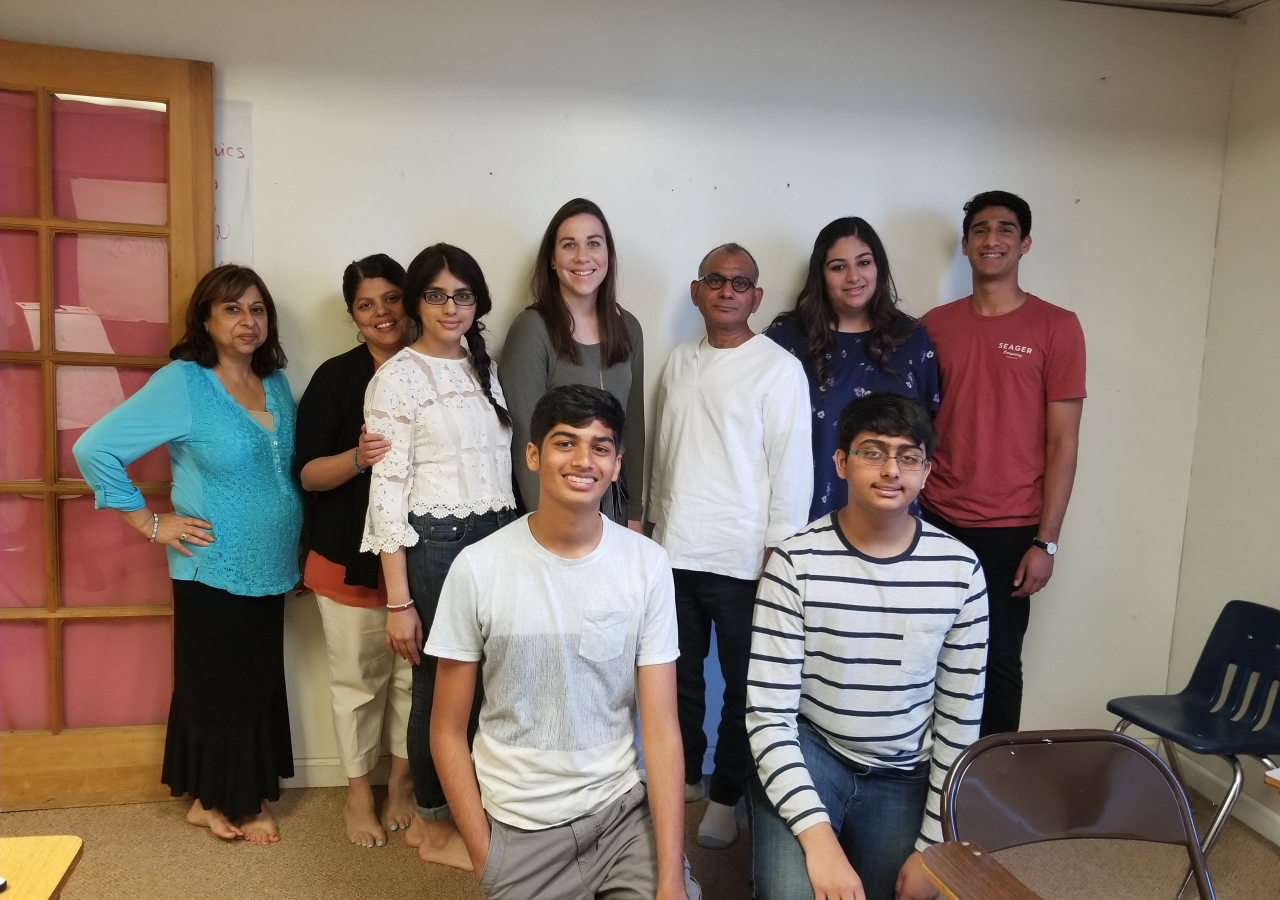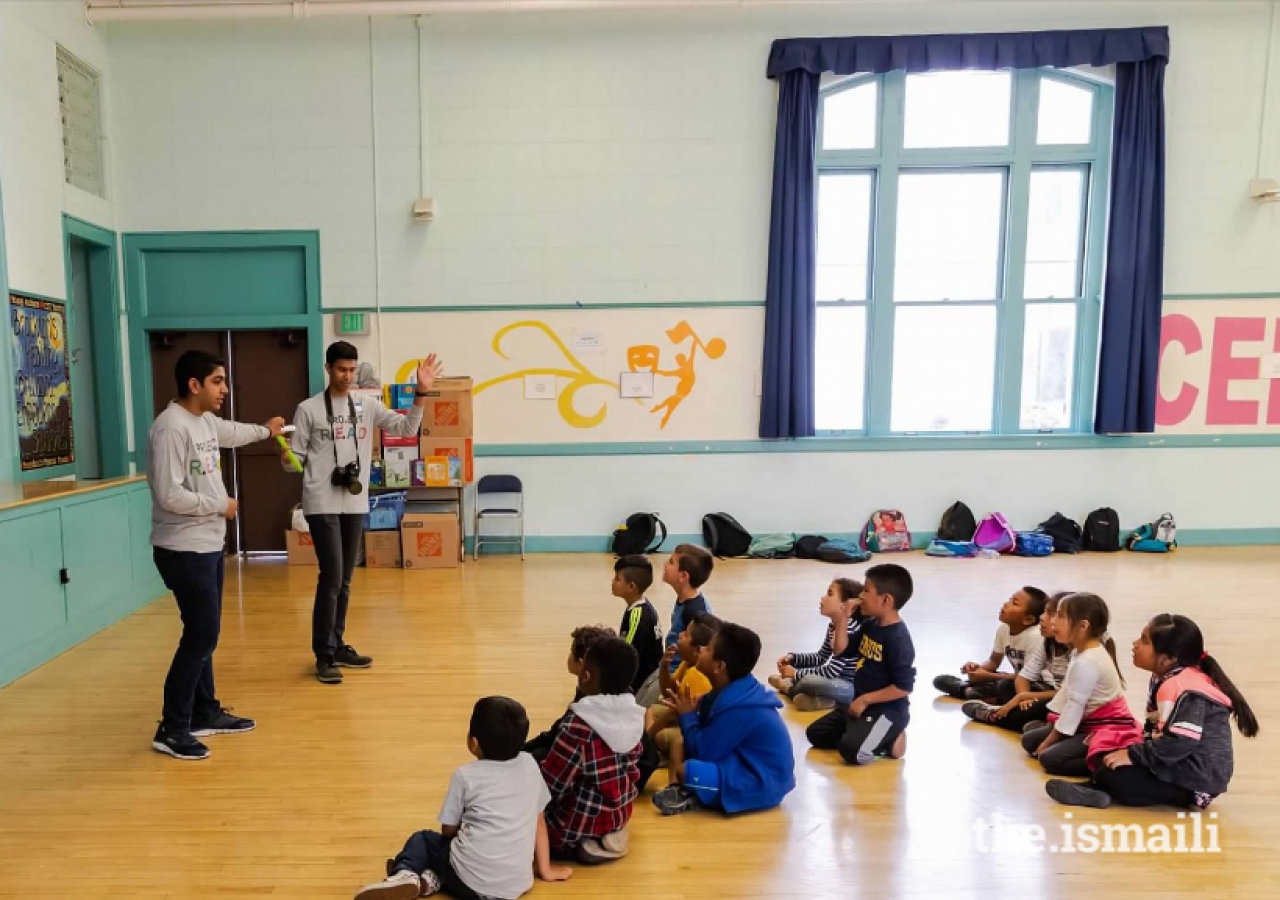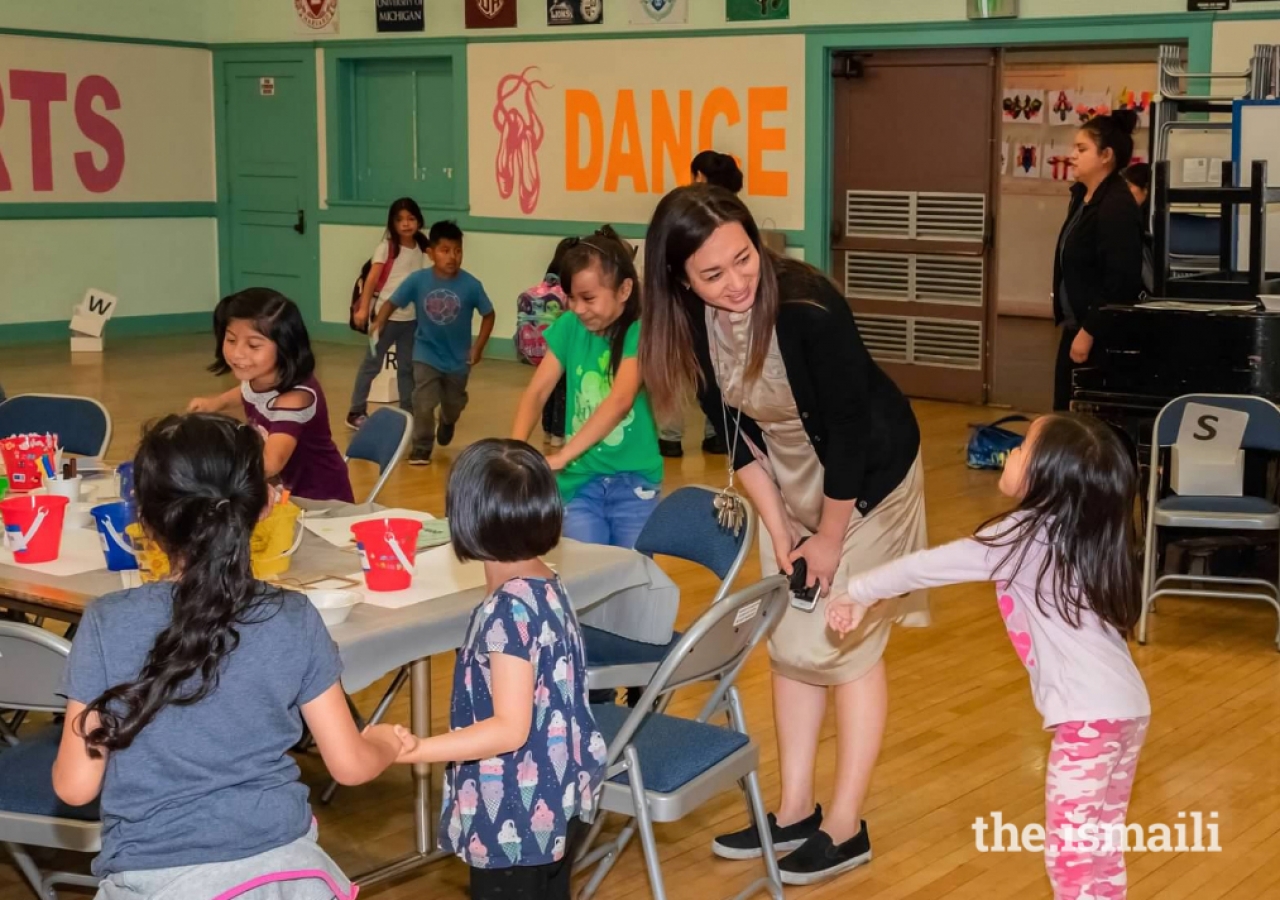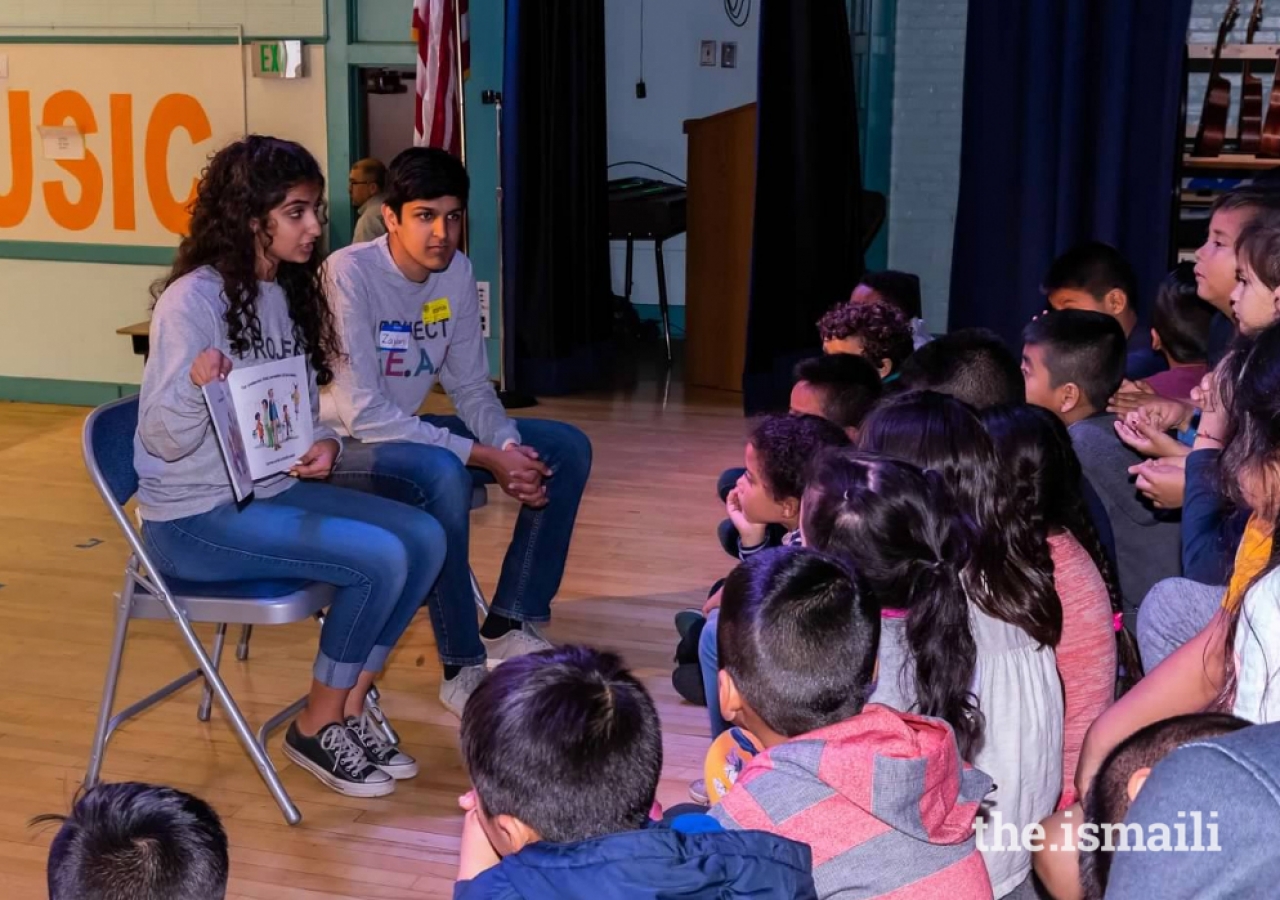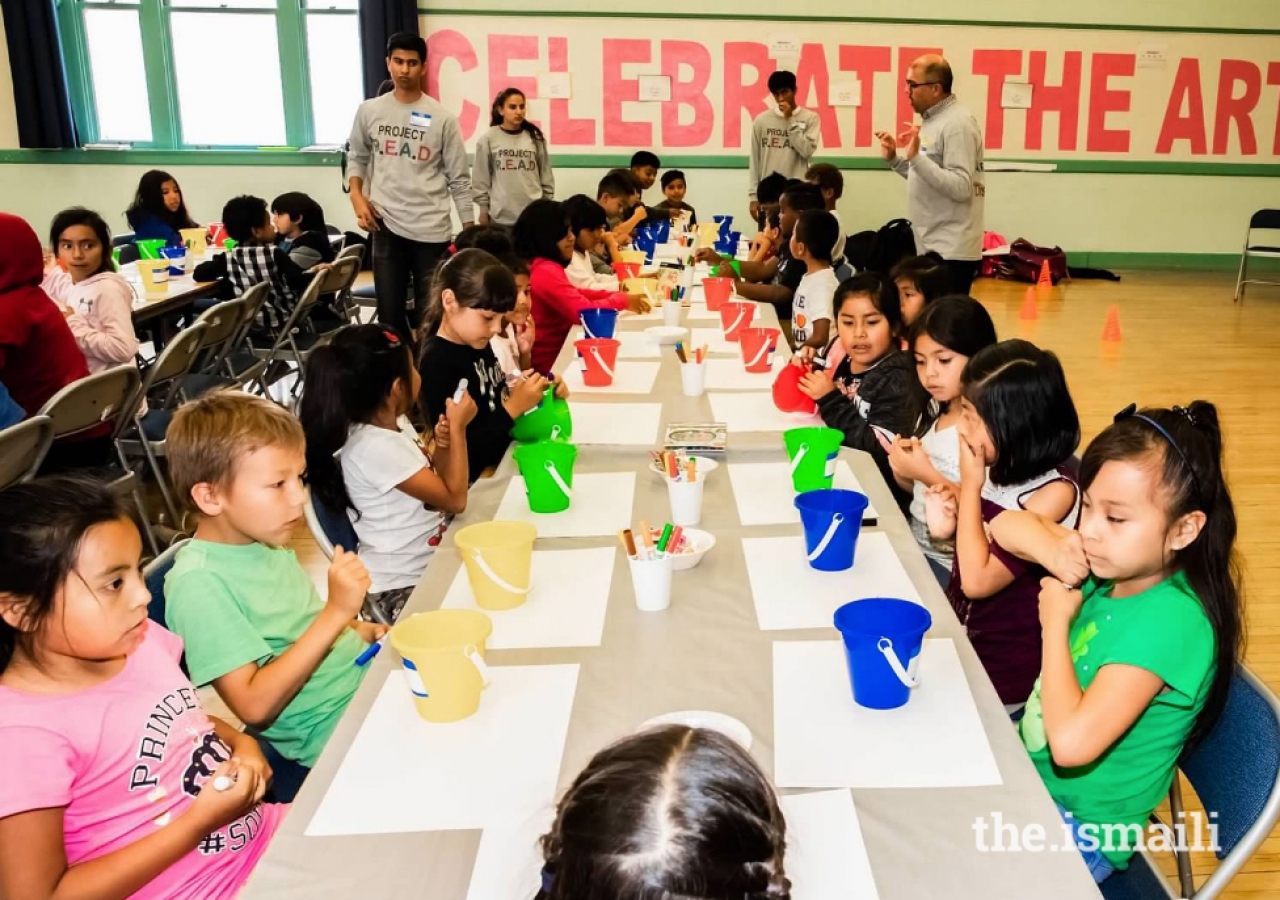The role of civil society as a central part of any vibrant community is a notion that has been embraced by the Jamat (and, increasingly, the larger Ummah) for nearly two decades now, in no small part due to the guidance and teachings of our Imam. Understanding how civil societies are formed and how one can truly incorporate the ethics that inform the establishment of these institutions is explored in the 11th and 12th grade religious education classes within the USA. This four-month course is entitled “Lived Ethics,” as through the ideation, planning and execution of these “Lived Ethics” projects, all the key beneficiaries of such projects (including students, teachers and the target audience) gain a deeper understanding of how to “live” these ethics in one’s daily life. The focus of this article is on two Religious Education Centers based in Southern California.
Orange County’s 11th and 12th grade class chose the opportunity to address a growing challenge around the world and in the USA – an increasing flow of refugees entering the country from war-torn nations. Despite this increasing flow, the class recognized that there was limited aid being provided by the government. The class chose to partner with the Tiyya Foundation, which helps incoming refugees assimilate to their new home. Owliya Dima and daughter Meymuna Hussein-Catta – two refugees from Ethiopia – founded Tiyya, which means “my love.” Meymuna, herself, was born in an Ethiopian refugee camp in Somalia. The Tiyya Foundation came about through Meymuna’s 2010 thesis project while in graduate school.
Upon learning more about this Foundation, the OC class, along with management, reached out to Tiyya in the hope of working together to help refugees coming into the USA. Within a week, Leila Salhi, from Tiyya, paid the class a visit during REC. She discussed Tiyya’s mission, its background, strengths and weaknesses. Tiyya strives to make refugee families feel at home and make the transition to American life as seamless as possible. They run many programs that help with both settlement and transition, such as youth groups, resume workshops, English classes and family fun days.
The information that was provided by Leila during this presentation made its desired impact. Following this presentation, the students came up with many ideas on how to help Tiyya and debated each of these. Out of the ideas pitched, the one that stood out to Tiyya the most was a diaper drive. During Leila’s presentation, she shared that 6,000 boxes of diapers are needed and that is the number one item refugee families struggle with due to cost.
The OC Diaper Drive, in partnership with the Tiyya Foundation, lasted for two weeks. Students made flyers, contacted Jamati members and made every marketing effort they could to get the word out. The drive was an immense success and the word about Tiyya also spread rapidly. This drive also happened during Eid, and therefore a sense of giving and community was strongly conveyed to all members of the Jamat. Working with Tiyya’s diaper drive schedule, the donated diapers were delivered and provided to numerous families. The relationship that the OC students established with Tiyya touched every member of the class and the Jamat, as well as members from Tiyya. This is expected to be the start of a long-term partnership.
The Los Angeles Headquarters 11th grade religious education class also developed an impactful project that affected their local community. The genesis of the class’ project was sparked by two fundamental ethics from the AKDN mandate, namely the Ethic of Education, and the Ethic of Compassion and Sharing. The class explored a number of ways to improve literacy, both domestically and internationally.
After seeing the enormous needs domestically and specifically locally, within Los Angeles County, the class developed a project to address the literacy needs within a local elementary school. Some of the information that drove the students to settle in on this project included the fact that nearly 25,000 students dropout of school in California annually and that 85% of juveniles are functionally illiterate.
Partnering with the Brockton Elementary School and the school’s supportive Principal, Ruth Kim, the LAHQ 11th grade class launched Project R.E.A.D., an acronym that stood for Reading, Education, Arts, and Discussion. The students’ vision was to bring reading and education to kindergarten, first and second grade students, in a format that allowed the students to express themselves artistically and truly enjoy the activity of reading a book. The students’ belief was that by making education and reading fun, this would encourage the students to become more motivated to read more actively.
As a first step, the 11th grade class held a children’s book drive set up in 15 different locations encompassing schools, Jamatkhanas and local neighborhoods. This exercise enabled the students to articulate the goals of their project with many different constituents and partners and resulted in over 1,700 books being collected. These books were screened for quality and appropriateness and a majority were donated to Brockton elementary school. The remainder were either donated to the local library or recycled.
The next step for these 11th graders was to implement Project R.E.A.D. In order to bring this “Lived Ethics” project to life, students developed a one-day after-school program where the students read to the participating children and then conducted several fun art activities. The book that inspired the activities and the reading was “Have you Filled a Bucket Today,” a book which teaches and encourages younger children to practice positive behavior every day, including kindness and appreciation for each other.
The event was an overwhelming success as over 60 students participated, each decorating their own personal bucket and handmade book. Furthermore, in order to implement the idea of compassion and sharing, each child was also given a compliment card that they had to pass on to someone else. In this manner, each child received a compliment from their peers and this further encouraged the idea of mutual kindness.
At the conclusion of this event, students gathered around for a reflection circle to recap the activity and express their personal experiences. During this time, the 11th grade LAHQ Religious Education Class also donated the books collected through the drive to the students upon one condition – all the students must read these books. Overall, this event left a memorable experience for the children, their parents, the Principal and the 11th grade LAHQ students.

